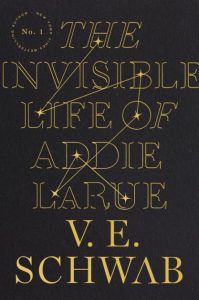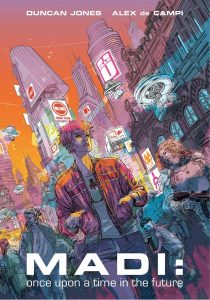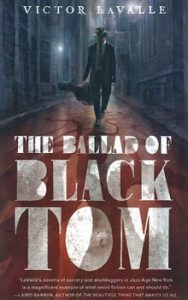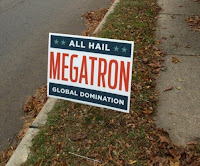Hey there! As I have several times in the past, I thought I’d take a moment at the holidays to mention some of the books I’ve read and enjoyed this year by much more talented authors. If you’re still wondering about what to get that certain someone, you could go hit your local bookstore, browse around a bit, and maybe find a few things from this list they might enjoy.
Or maybe you’ll just find something on your own. That’s the fun of browsing in real-world bookstores.
So, in no real order…
Project Hail Mary by Andy Weir – we’ll start with an easy one. If you haven’t somehow heard, Andy’s latest is (surprise) just fantastic. The tale of an (accidentally) lone astronaut’s desperate attempt to save the Earth. It’s fun, it’s fast, it’s incredibly smart while being ridiculously accessible. Absolutely anyone will enjoy it. Yeah, even that grouchy uncle who doesn’ tlike sci-fi stuff.
The Invisible Life of Addie LaRue by V.E. Schwab—I’m a sucker for stories about memory and identity, and this book approaches it from the opposite side. What if it wasn’t your memory but everyone else’s. What if no one could ever remember you? What if they forgot you the moment they couldn’t see you? What kind of life would this be? And what if that life never, ever ended… ?
Bottle Demon by Stephen Blackmoore—every year Stephen writes a new book about necromancer Eric Carter and every year it ends up on this list. This most recent one is, hands down, his most amazing, and probably the most emotional, too, as Carter deals with an army of golems, an irate djinn, and the completely mysterious and unexpected resurrection of… well, himself.
King Bullet by Richard Kadrey—if you’re one of those people who waits for the end of a series to start reading, well, I guess this is a good day. Kadrey brings the Sandman Slim books to a close with one last Stark adventure and a truly magnificent ending that feels perfectly fitting while also being somehow completely unexpected.
Dread Nation by Justina Ireland—I’ve read a lot of zombie books out of a very broad genre, but this book manages to be fresh and very fun, picturing an alternate world where the American Civil War is disrupted by a mass zombie outbreak, and young women of color are trained to be bodyguards against the undead for “proper” women. I liked it so much I recommended this one for our Last Bookstore dystopian book club.
The History of What Comes Next by Sylvain Neuvel—a wonderful tale about aliens and their very long-game plan to shape the Earth’s assorted space programs to prepare us for… something. It’s one of those books that’ll teach you a lot of history even as it entertains you.
Madi by Duncan Jones, Alex deCampi, and too many fantastic artists to list here—this graphic novel is set in the same world as Jones’s films Moon and Mute, and asks what happens when a government super-cyborg decides to retire, especially when their body’s loaded up with proprietary software and hardware that requires ongoing maintenance and updates. It’s kind of like the weirdly fun baby that came out of a threeway between The Transporter, Crank, and The Bionic Woman.
Hard Reboot by Django Wexler—it’s a love story about a pair of women trying to rebuild a giant robot so it can compete on the giant robot pit-fighting circuit. Seriously, what more do you need to know?
Reclaimed by Madeleine Roux—remember what I said about memory and identity? Seriously, it’s like Madeleine wrote this book just for me. A group of people agree to be test subjects for a procedure that can erase traumatic experiences from your memory. But how much of who you are is defined by those experiences? What kind of person are you changed into once they’re gone? And how would you go about fixing that change…?
The Book of Accidents by Chuck Wendig—this is a beautiful, brutal book, and it’s almost tough to recommend because it hit a lot of nerves for me, personally, that are probably going to be raw forever. That said, it’s a wonderful book about choices and consequences and how they make us who we are.
All Systems Red by Martha Wells– people have been telling me about the Murderbot books for ages, so I’m really late to this party. You may already know this but if you somehow didn’t… wow, what a fun read. The story of a security android that figures out how to hack its own code, inadvertently becoming an independent being and now stuck guarding a group of scientists on a survey mission.
Ballad of Black Tom by Victor LaValle –another one I’m really late on but goddamn. This was one of the first books I read in 2021 and it’s still hands down the best. There just aren’t enough adjectives to describe how fantastic this book is and on how many levels. Lovecraftian horror grounded in real-world horror and it’s just brutally beautiful.
And those are my personal favorites for the year. I may add to this list over the next week or two, depending on how my current reads go. Please feel free to add any of your own must-reads down in the comments. I’d also shamelessly remind you that you can find a lot of my own books at your favorite local bookstore, like The Fold, Paradox Bound, or the Ex-Heroes books.
I’ll also take this moment to remind you of my Black Friday offer, just in case you missed it earlier. Please feel free to get in touch if you think it might help you out. And please—it’s not about if someone needs it more than you. It’s just about if you need some help.
Oh, and if you happen to be at SDCC Special Edition this weekend, I’m going to be hosting the Writer’s Coffeehouse on Sunday at
Happy holidays. Probably back to all our usual stuff next week.










